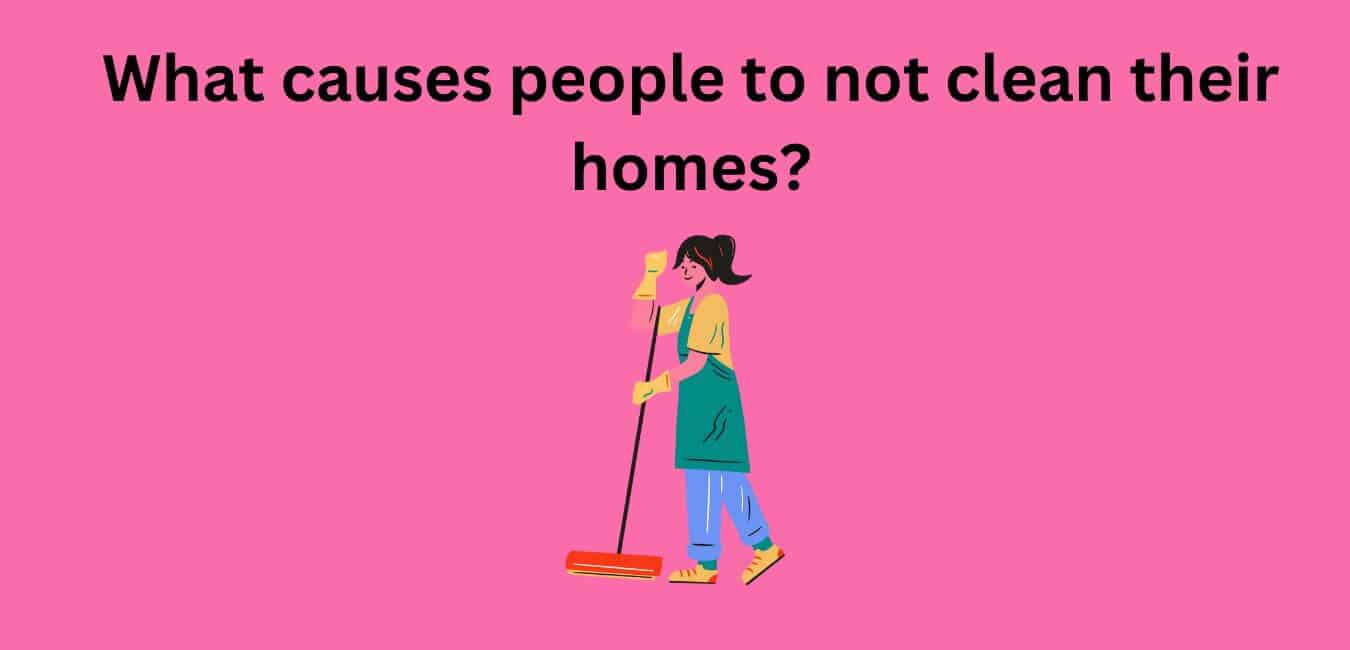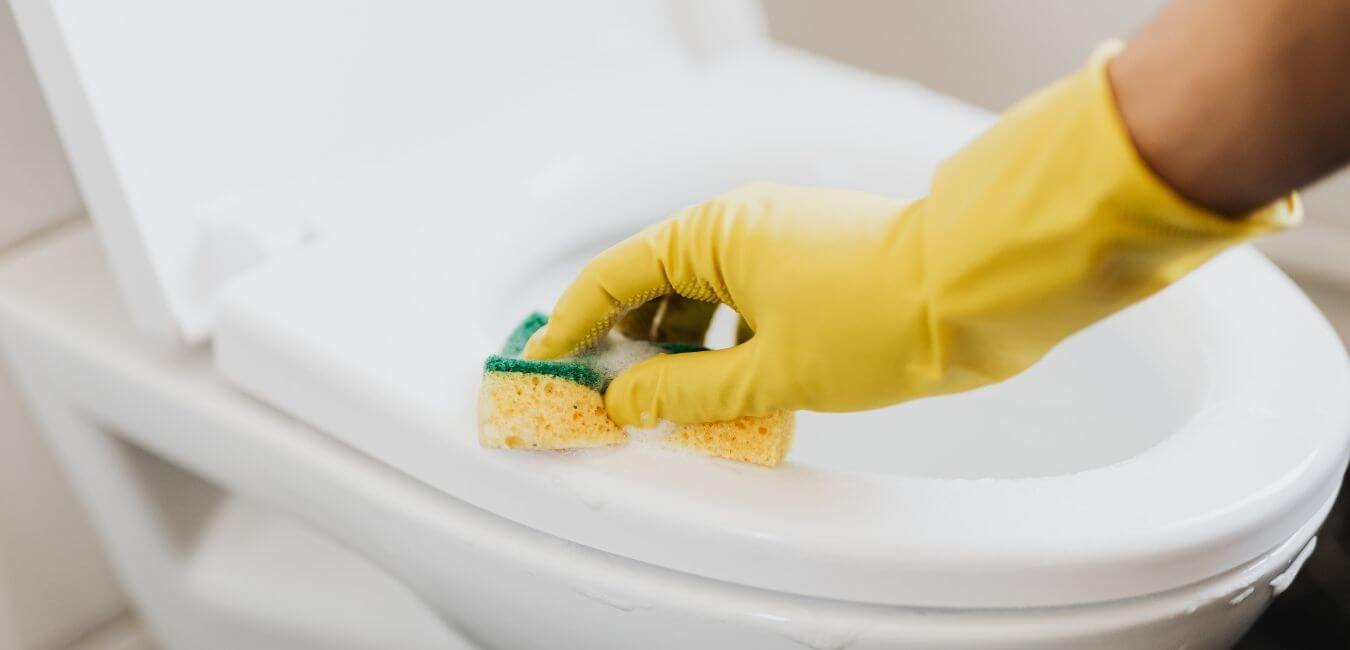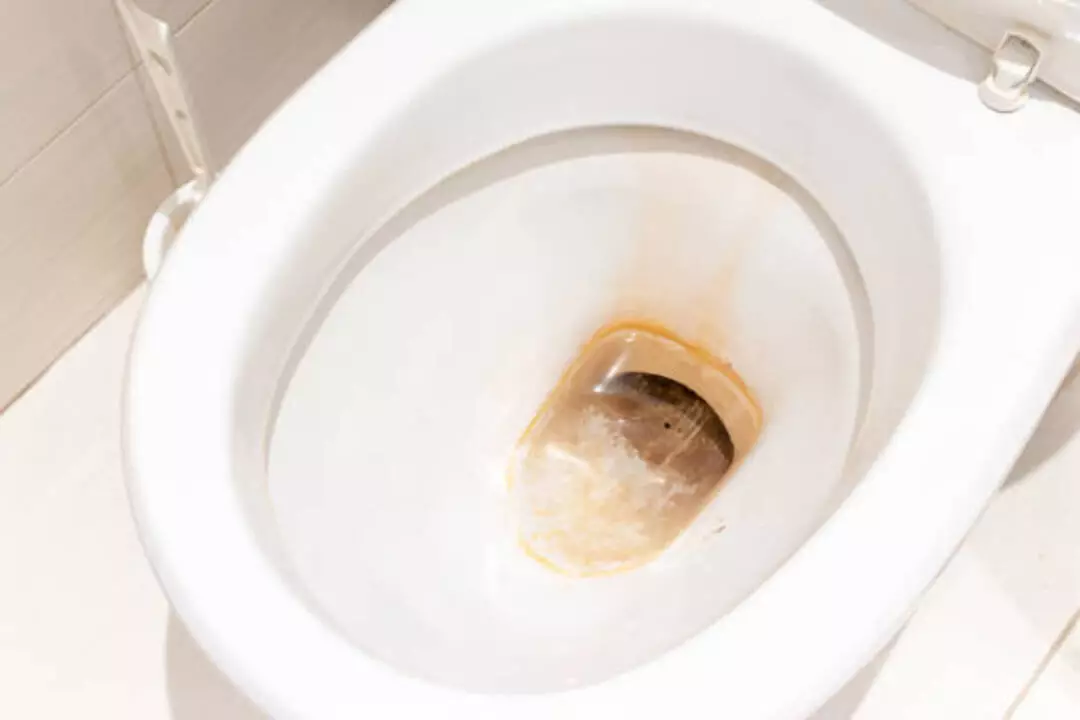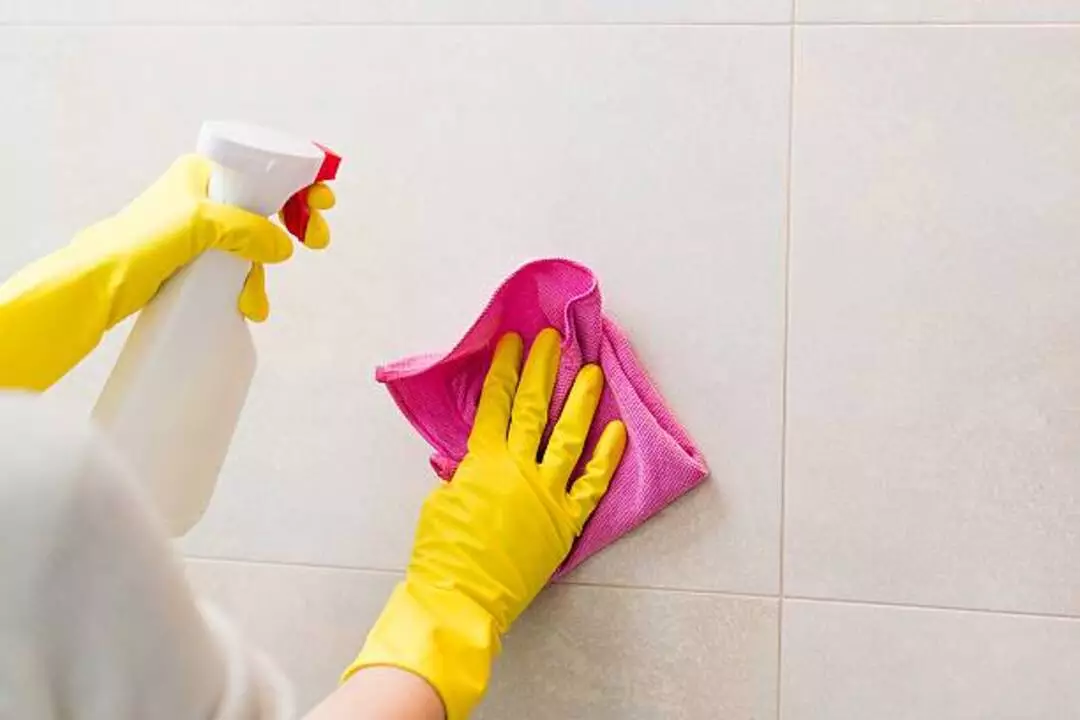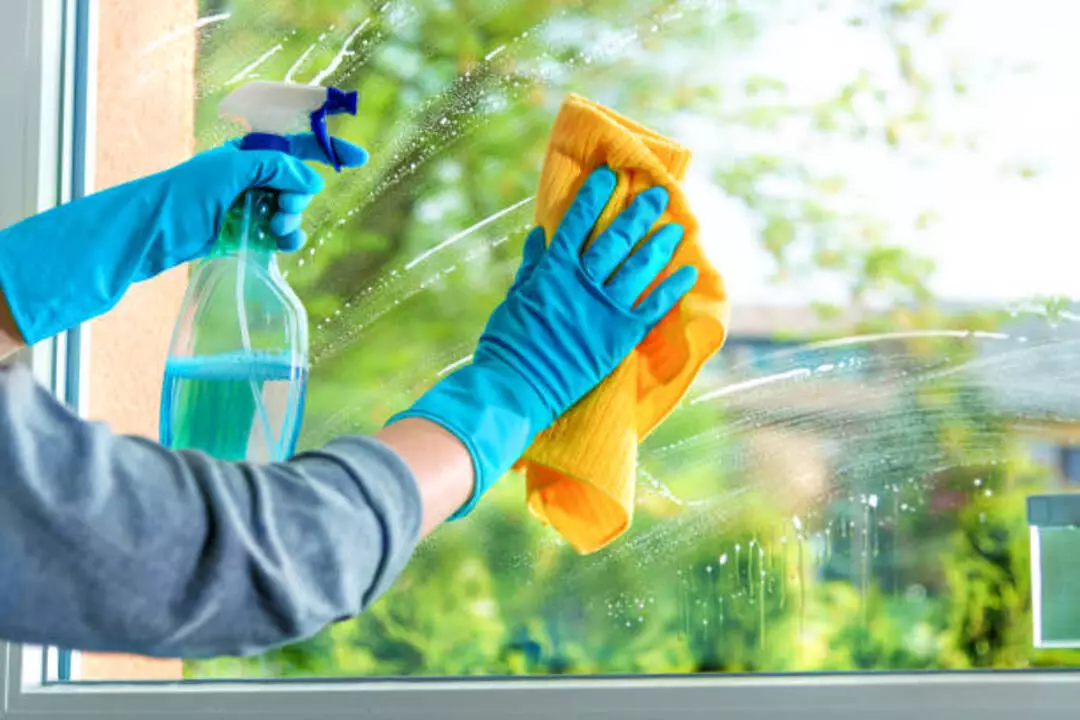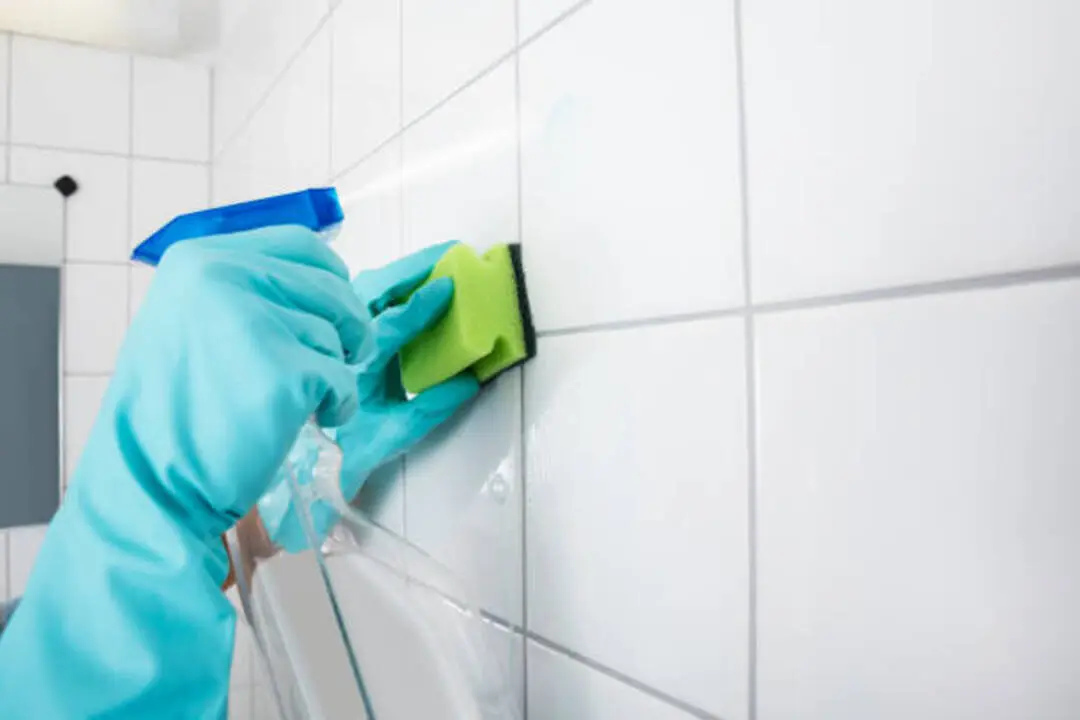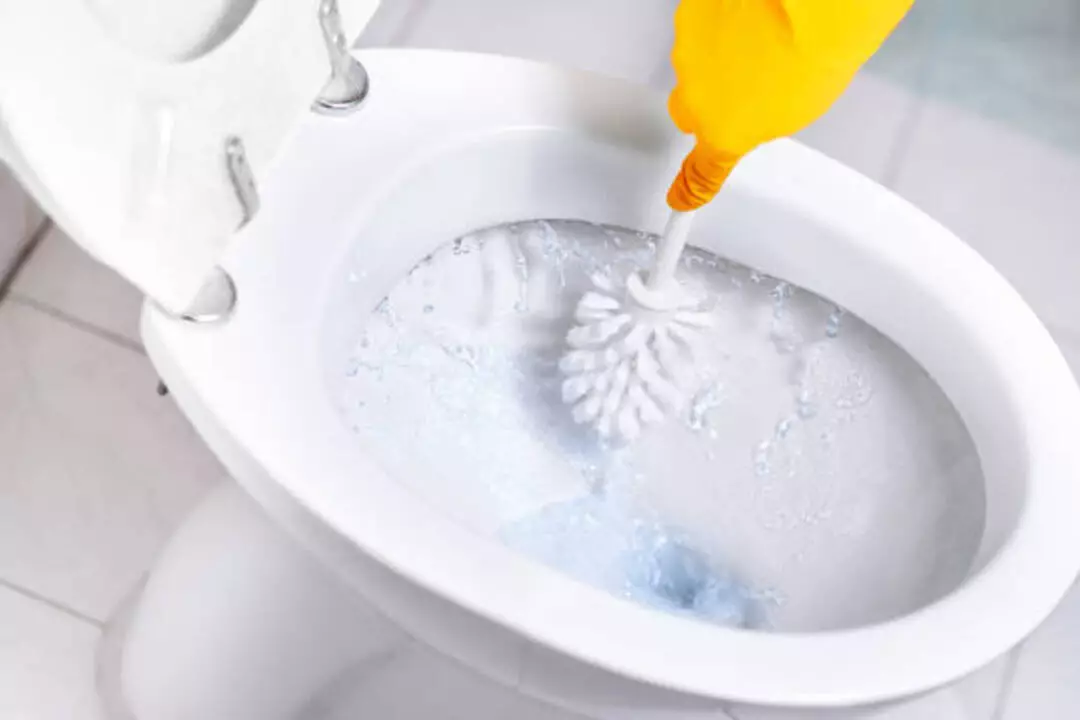It’s no secret that a cluttered environment can have negative impacts on our mental and physical well-being. But what exactly causes people to let their homes get to such a state?
You may be surprised to learn that various factors often come into play, from a lack of time and resources to emotional barriers or psychological conditions.
This blog post will delve into nine intriguing causes that may shed some light on why some individuals struggle to maintain a clean household. So, grab a cup of tea, sit back, and join us as we explore the reasons behind cluttered and unkempt living spaces.
Why Some People Find It Difficult to Clean Their Homes

1. Lack of time and energy
One of the primary reasons individuals neglect to clean their homes is the lack of time. In today’s fast-paced world, people are often juggling multiple responsibilities, such as work, family, and social commitments, leaving little time for housekeeping tasks. As a result, household chores may fall by the wayside as other priorities take over. Furthermore, the time-consuming nature of cleaning and organizing can make it difficult for people to fit these tasks into their busy schedules.
Another significant cause of untidiness in homes is a general lack of energy. Many individuals face a constant state of exhaustion due to hectic lifestyles, stress, or health issues. The physical and mental exhaustion that comes with a demanding daily routine often leaves little energy for housekeeping. Moreover, when a person is feeling tired or worn down, even the thought of tackling cleaning tasks can be overwhelming and demotivating.
Physical limitations may also prevent individuals from maintaining a clean home. For example, people with mobility restrictions, chronic pain, or other disabilities may find it challenging to complete physically demanding chores. In such cases, individuals might require assistance from friends, family members, or professional services to maintain a tidy living space.
2. Procrastination and laziness
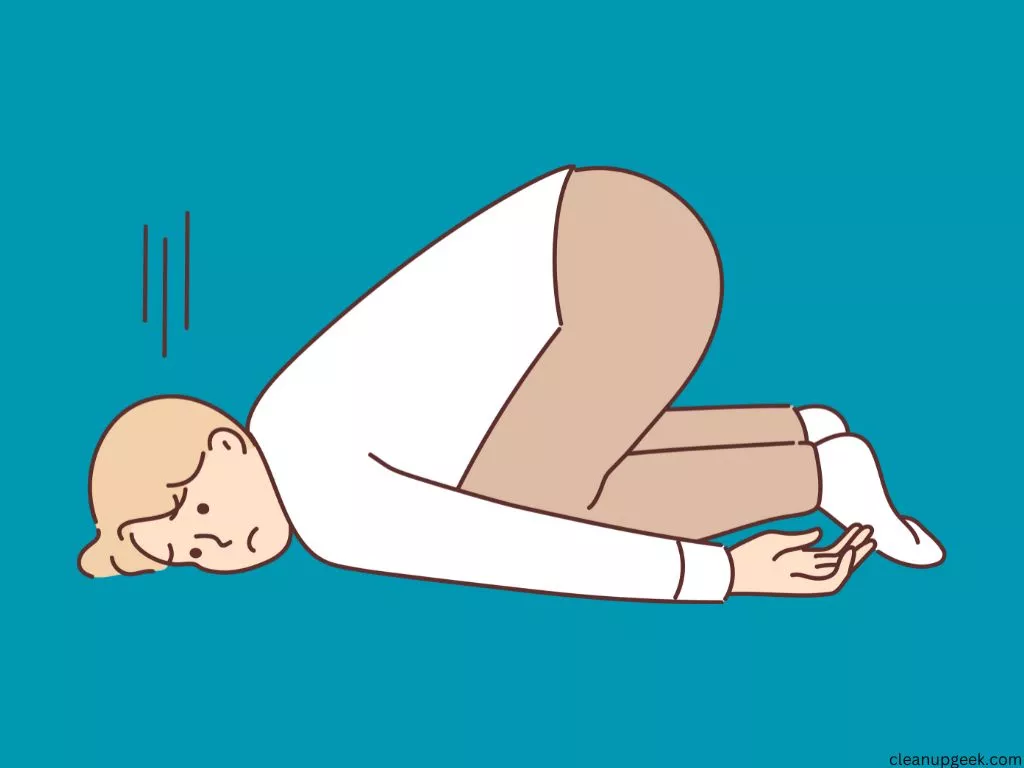
One of the primary reasons people avoid cleaning their homes is procrastination and laziness. This temporary state can be overcome, but it stands as a significant factor in people’s reluctance to tidy and organize their living spaces.
Another cause for people not cleaning their homes is a lack of mobility, which often affects the elderly. As people age, their bodies become less flexible and less capable of undertaking strenuous physical tasks, such as cleaning. This becomes an even greater problem when elderly individuals live alone and do not have anyone to share the responsibility of housekeeping.
Mental health issues, such as depression and anxiety, can also lead people to neglect their housekeeping duties. When individuals are struggling with their emotions and mental state, the prospect of cleaning may seem insurmountable. This lack of motivation and prioritization of mental well-being can result in a cluttered and untidy environment.
Physical health problems are an additional cause for people not cleaning their homes. Disabilities and chronic pain, for example, can make cleaning tasks extremely difficult, if not impossible, to perform. As a result, this group of individuals may require assistance in maintaining a clean living space.
Furthermore, time constraints and a busy lifestyle can leave individuals with little to no time or energy to devote to cleaning. Consequently, housekeeping tasks may fall by the wayside, leading to clutter and disorganization.
A sense of being overwhelmed by the sheer amount of cleaning required can also deter people from tackling the task. When faced with a space that has become excessively messy, the prospect of cleaning may seem daunting and unattainable.
In some cases, people may lack the knowledge or skills required to properly clean and organize their homes. This lack of expertise can lead to flawed cleaning efforts, resulting in a persistently untidy living space.
Finally, emotional attachment and hoarding tendencies can be responsible for preventing people from cleaning their homes. Individuals may hold onto items that they no longer need or use, which ultimately leads to clutter and a disorganized living environment.
3. Overwhelmed by clutter and mess
When asking what causes someone to not clean their house, there are many factors that might contribute to this behavior. For some, it might simply be a matter of having too much stuff, not enough time, or having young children who are not always motivated to clean up after themselves. However, there are other times when messiness can be a sign of deeper mental health issues. For example, depression can cause someone to struggle with the motivation and energy needed to keep up with household chores.
Another possible reason for chronic messiness is the individual’s personality. Some people are just naturally more inclined to be untidy, especially if they are highly creative or imaginative. Their minds are often too preoccupied with new ideas and concepts to notice the state of their living spaces until someone else brings it up. In these cases, practicing mindfulness and setting daily tidying routines can help.
For others, the inability to keep a clean home could be a result of feeling overwhelmed by the tasks at hand. This can be especially true for those who struggle with anxiety or issues with focusing. Breaking down the cleaning process into smaller, manageable tasks can provide some relief for these individuals.
In conclusion, there are myriad reasons why someone might not clean their house, ranging from a busy schedule to mental health challenges to personality traits. Understanding these underlying causes can help individuals take steps to create an environment that is more comfortable and conducive to their well-being.
4. Lack of motivation

One major cause of not cleaning homes is a lack of motivation. This can stem from various factors such as mental or physical health issues, time constraints, or personal preferences. When a person faces challenges in their daily life, such as a demanding job or personal stress, they may feel overwhelmed and lack the energy to maintain their living space.
In some cases, physical illnesses or disabilities can hinder an individual’s ability to clean. Chronic pain, limited mobility, or constant fatigue can make it exceedingly difficult to complete household chores. In turn, this can lead to a messy environment that can exacerbate existing health problems.
Mental health plays a significant role in a person’s desire and ability to maintain a clean home. Conditions such as depression and anxiety can lead to feelings of hopelessness, lack of energy, and disinterest in maintaining cleanliness. In more severe cases, disorders like hoarding can cause the accumulation of too many possessions, making it nearly impossible to maintain a clean and organized living space.
Another cause of an untidy home is simply personal preference. Some individuals may enjoy living in a cluttered environment, considering it as comforting or a source of inspiration. In these cases, a person may not see the need to clean, as they find their environment suitable for their needs and preferences.
Time constraints often play a role in maintaining cleanliness, as busy individuals may prioritize other responsibilities over maintaining their home. This can lead to a buildup of mess and disorganization over time. Additionally, those with poor vision may struggle to see dirt and mess, causing them to overlook cleaning tasks.
In summary, individuals may not clean their homes due to various causes such as physical or mental health problems, personal preferences, or a lack of time or ability. It is essential to consider these factors and extend support to those who may be struggling with maintaining cleanliness in their living spaces.
5. Depression or anxiety
One possible cause of not cleaning one’s home is depression or anxiety. These mental health issues can significantly impact a person’s motivation and energy levels, making tasks like tidying up and maintaining a clean environment seem overwhelming and challenging. Individuals suffering from depression often find it hard to concentrate and take care of themselves, let alone keep up with household chores. As a result, their living spaces may become cluttered and messy over time.
Similarly, anxiety can cause people to avoid certain tasks, like cleaning, which may trigger feelings of anxiety or discomfort. This avoidance behavior can lead to a messy home, further exacerbating feelings of unease or distress. In some cases, anxiety disorders like Obsessive-Compulsive Disorder (OCD) can cause individuals to become preoccupied with cleanliness and organization, leading to excessive and time-consuming cleaning rituals.
Another factor that may contribute to a messy home is the presence of young children. Kids are not always the most motivated when it comes to cleaning up after themselves, making it challenging for parents to maintain a tidy living space. Additionally, a busy schedule or excessive belongings can make it difficult to keep an organized and clean environment.
It is essential to recognize that a messy home may be a symptom of more profound mental health issues. If you suspect that your untidy living space is a result of depression or anxiety, don’t hesitate to consult with a mental health professional. They can help you understand the underlying reasons for your disorganization and provide guidance and support for improving your mental well-being and maintaining a cleaner home.
6. Physical limitations or disabilities

Physical limitations or disabilities can significantly impact a person’s ability to maintain a clean and tidy home. When an individual struggles with mobility or experiences chronic pain, the simple task of cleaning and organizing can become extremely difficult. A lack of physical strength, endurance, or dexterity can make even the most basic household chores nearly impossible to complete.
In some cases, individuals with physical limitations may be unable to bend, lift, or reach certain areas that require cleaning. These restrictions can prevent them from effectively maintaining a neat and tidy living environment. Additionally, a lack of stamina could mean that it takes them much longer to complete tasks, leaving them exhausted and potentially unable to finish.
Furthermore, some disabilities may affect an individual’s vision or perception, making them unable to accurately identify unclean or cluttered areas in their living space. In such instances, they may not recognize the need to clean, even when their surroundings become significantly disordered.
Another challenge faced by those with physical limitations is the potential embarrassment or discomfort in asking for assistance. They may feel like a burden on others or fear being judged for their inability to maintain a clean home on their own. This could lead them to avoid seeking help, allowing the mess to continue building up.
In conclusion, physical limitations and disabilities can make it incredibly difficult for individuals to maintain a clean and orderly living environment. The challenges of mobility, pain, and inability to complete tasks without assistance can lead to unclean or cluttered homes. It’s important for friends, family, and community members to offer support and assistance to those facing these challenges, to help ensure a healthy and comfortable living space for all.
7. Lack of knowledge or skills
A clean and tidy home is often seen as a sign of success and a reflection of one’s personality. However, some people struggle with maintaining a clean living space due to various reasons. One main cause is a lack of knowledge or skills in housekeeping. People who have not grown up in organized homes or never learned cleaning techniques may feel overwhelmed and unsure of where to start. This can lead to procrastination and eventually, a messy home.
Another contributing factor is physical disabilities or chronic pain that might hamper one’s ability to keep up with cleaning tasks. Elderly individuals, for instance, might find it difficult to bend, stretch, or lift objects, resulting in a cluttered and untidy environment. Mental health issues, such as depression and anxiety, can also take their toll on one’s ability to maintain a clean home. The lack of motivation or energy, coupled with feelings of hopelessness, can result in neglecting household chores.
Physical health problems, like chronic illness or injury, can make it difficult to upkeep a tidy living space. Those dealing with these issues might not have the stamina or strength required to keep their home spotless. In such cases, seeking medical assistance and using adaptive devices can greatly help.
Busy lifestyles and long working hours are also major contributing factors to keeping a home in disarray. People may struggle to find the time and energy required to clean and organize their space. To cope with this challenge, individuals can consider decluttering, focusing on high-priority areas, and asking for help from family members.
In some cases, a cluttered environment might be a result of having too many possessions. In such situations, letting go of unused or unnecessary items can make a significant difference in the ease of cleaning and organizing. Decluttering not only makes housekeeping tasks more manageable but also creates a sense of peace and freedom within the living space.
8. Lack of accountability or consequences
One common reason people don’t clean their homes is due to a lack of accountability or consequences. In some households, there might not be established responsibilities for maintaining cleanliness and orderliness, leading to neglected chores and an untidy environment. With no clear ownership of the tasks, clutter, and grime can quickly accumulate, making the mess seem more overwhelming and difficult to tackle.
Additionally, a lack of consequences can contribute to not cleaning a house. If the messy environment doesn’t directly impact an individual’s daily life, there might be no compelling reason to address the issue. For instance, some people might not mind the clutter as long as they can still perform their daily activities without much hassle. Consequently, the habit of neglecting housekeeping tasks might persist since there are no immediate negative consequences.
In some cases, a lack of accountability might stem from an imbalance of household responsibilities. One person might take on the bulk of the cleaning duties, while other members of the household contribute little or nothing. This inequality can lead to resentment and frustration, further hindering the cleaning process and creating an even messier environment.
Lastly, procrastination plays a significant role in the lack of housekeeping. The seemingly daunting task of cleaning an entire house can lead some people to repeatedly delay and avoid taking action. Without a sense of accountability or consequences for procrastination, there may be no motivation to confront the clutter and dirt, ultimately resulting in a perpetually untidy home.
9. Perfectionism and fear of failure

One common reason people may not clean their homes is due to perfectionism. A perfectionist might avoid cleaning tasks because they fear they will not be able to complete them to their high standards. This fear of failure can cause them to put off or avoid starting the task altogether. A desire to have every aspect of their home spotless and perfectly organized can lead to feelings of anxiety and overwhelm, making it even more difficult to initiate the cleaning process.
Perfectionists often experience paralysis by analysis, which means they find it difficult to start a task or make decisions because they are constantly analyzing the various options and expecting the perfect outcome. This way of thinking can hinder their ability to clean their homes, as they may spend excessive amounts of time trying to decide the best way to approach the task or even which cleaning supplies to use.
Additionally, perfectionism can result in a fear of being judged by others. A person may worry that if their home is not immaculate, they will be seen as a failure, which can further contribute to their reluctance to clean. This fear of negative judgment might cause them to avoid inviting people over, creating a sense of isolation and reinforcing the notion that their home must always be pristine.
In order to overcome perfectionism and its impact on cleaning habits, it is important for individuals to challenge their unrealistic expectations and learn to accept that a clean but not perfect home is still a comfortable and inviting space. This may involve practicing self-compassion, seeking support from friends and family, or working with a therapist to address the underlying beliefs related to their perfectionism.
Find more of our articles here.
Conclusion and final thoughts 💭
There are various reasons why people might not clean their homes, ranging from physical limitations to mental health issues. It is essential to understand that laziness is not always the primary cause and that individual circumstances play a significant role in people’s ability to maintain a clean living space.
One of the main reasons could be the lack of mobility among the elderly, making it challenging for them to carry out household chores efficiently. On the other hand, people with physical disabilities might also find it difficult to maintain their living spaces, especially if they have limited access to resources and assistance.
Mental health issues like depression and anxiety can also significantly impact a person’s ability or motivation to clean their homes. Such individuals might not have the mental energy or focus required to maintain a tidy living environment. Moreover, those struggling with untreated mental illnesses are more likely to isolate themselves from society, preventing others from becoming aware of their living conditions.
External factors such as a busy lifestyle, having young children in the home, or even the overwhelming presence of clutter might also discourage someone from cleaning their house. It is vital to acknowledge these challenges and provide support whenever necessary.
Lastly, understanding the root causes behind a messy home is the first step in addressing the problem. Open communication and empathy can go a long way in helping individuals who might be struggling with their living conditions. Offering assistance, resources, or professional help, if necessary, can make all the difference in improving their overall quality of life.
